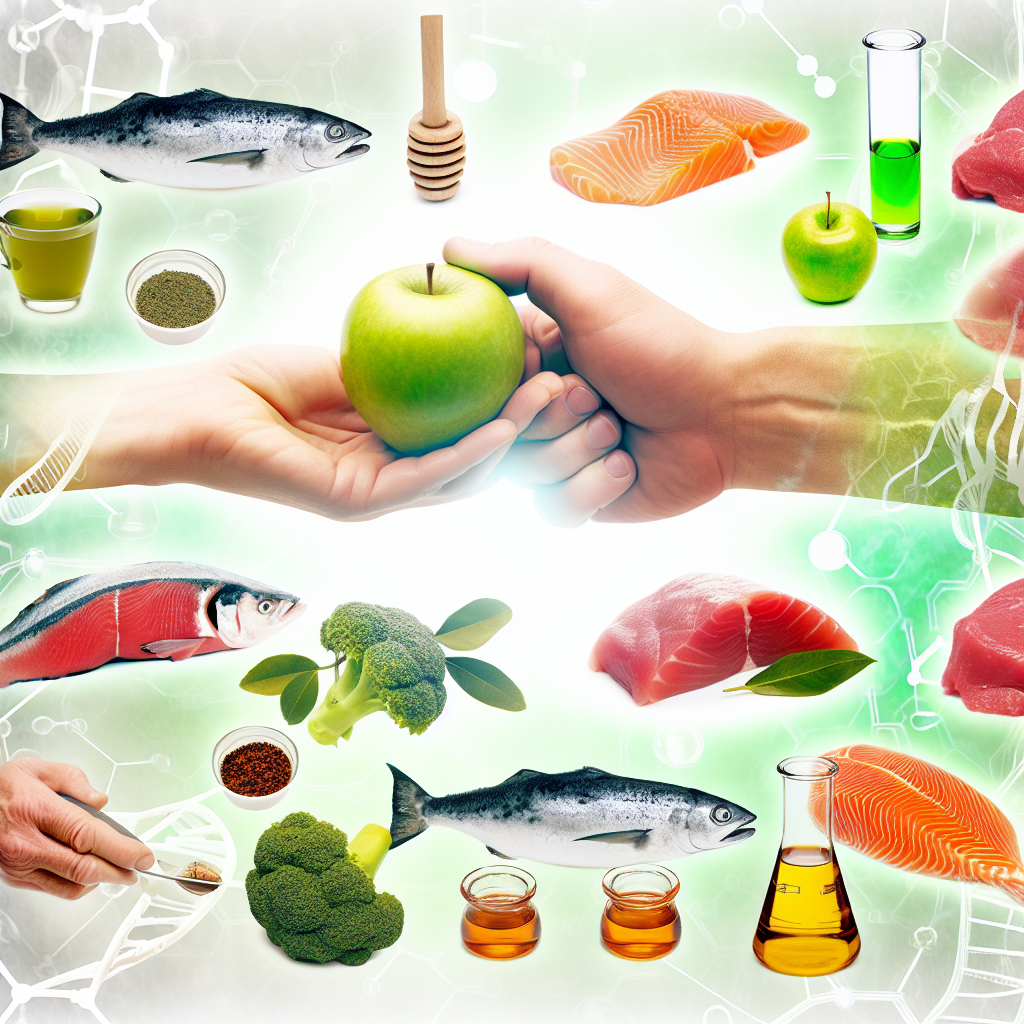Alternative Depression Treatments: Studies
Introduction
Depression is a serious mental health condition affecting millions of people worldwide. While conventional treatments such as antidepressants and therapy are widely used and effective for many, they may not be suitable for everyone. Side effects, dependency, and limited accessibility can lead individuals to seek alternative methods for managing their symptoms. Fortunately, growing interest in natural remedies, homeopathy, and herbal treatments has led researchers and medical professionals to examine alternative options for treating depression.
As our understanding of depression deepens, studies are beginning to showcase the potential benefits of alternative treatments, ranging from herbal supplements to holistic approaches like mindfulness and acupuncture. These therapies often work by targeting mood regulation, inflammation, and brain chemistry through natural mechanisms, offering hope to those who struggle with conventional methods.
Natural and homeopathic treatments for depression vary according to the individual’s needs, severity of symptoms, and lifestyle. Some of the most commonly explored options include St. John’s Wort, omega-3 fatty acids, probiotics, acupuncture, and mind-body practices such as meditation and yoga. Additionally, lifestyle changes such as light therapy, exercise, and dietary modifications can contribute to improved mental health.
Although alternative treatments are not a one-size-fits-all solution, research suggests that they can provide significant relief either as standalone treatments or as complementary therapies. Importantly, individuals considering alternative treatments should consult medical professionals to ensure safety and effectiveness. As more studies emerge, the credibility of natural and holistic depression treatments continues to grow, making them viable options for those seeking a different approach to mental wellness.
In this article, we delve into scientific studies exploring the efficacy of alternative depression treatments, highlighting research-backed methods that provide hope for individuals struggling with mental health.
Scientific Studies on Alternative Depression Treatments
St. John’s Wort: A Natural Antidepressant?
One of the most well-researched herbal treatments for depression is Hypericum perforatum, commonly known as St. John’s Wort. Studies suggest that the herb functions similarly to conventional antidepressants by inhibiting the reuptake of serotonin, dopamine, and norepinephrine, helping to enhance mood and emotional stability.
A systematic review published in the Cochrane Database of Systematic Reviews analyzed multiple clinical trials involving St. John’s Wort. The findings indicated that the herb was more effective than a placebo and equally effective as standard antidepressants in treating mild to moderate depression, with fewer reported side effects ([NCCIH]).
However, St. John’s Wort can interact with various medications, such as birth control, anticoagulants, and certain antidepressants, making it crucial for users to discuss its use with a healthcare provider.
Omega-3 Fatty Acids: Can Fish Oil Improve Your Mood?
Omega-3 fatty acids, abundant in fish oil and flaxseeds, play a critical role in brain function and mood regulation. Several studies have examined the link between omega-3s and depression, with promising results.
A meta-analysis published in Translational Psychiatry reviewed randomized controlled trials on omega-3 supplementation and its effect on depression. It concluded that omega-3s, particularly eicosapentaenoic acid (EPA), significantly reduced depressive symptoms in individuals with major depressive disorder ([National Library of Medicine]).
Researchers believe that omega-3s help regulate neurotransmitters, reduce neuroinflammation, and improve overall brain function, all of which contribute to alleviating depressive symptoms.
Probiotics and the Gut-Brain Connection
Recent studies have highlighted the link between gut health and mental well-being, coining the term “gut-brain axis.” The balance of gut microbiota influences mood, stress response, and cognitive function, making probiotics a compelling natural remedy for depression.
A 2017 study published in Gastroenterology found that individuals who consumed probiotic supplements experienced significant improvements in mood and reductions in depressive symptoms compared to the placebo group ([Gut Microbiota Research]).
Certain strains, such as Lactobacillus and Bifidobacterium, are believed to help lower cortisol levels and enhance serotonin production, potentially offering relief to those suffering from depression.
Acupuncture: Balancing Energy for Mental Well-Being
Acupuncture, a key component of Traditional Chinese Medicine (TCM), has been explored as an alternative treatment for depression. By stimulating specific pressure points, acupuncture is believed to enhance neurochemical balance and promote relaxation.
A study published in JAMA Psychiatry evaluated the effects of acupuncture on individuals with depression and found that participants who received acupuncture treatment showed significant improvements in depressive symptoms compared to those who received standard care alone ([JAMA Psychiatry]).
The study concluded that acupuncture could serve as a complementary treatment for individuals who do not respond well to traditional antidepressants.
Meditation and Mindfulness: Rewiring the Brain for Positivity
Mindfulness meditation and other relaxation techniques have been increasingly studied for their mental health benefits. These practices focus on reducing stress, enhancing self-awareness, and promoting emotional regulation.
A meta-analysis published in JAMA Internal Medicine reviewed multiple studies on mindfulness-based stress reduction (MBSR) and cognitive therapy (MBCT). The results showed that mindfulness-based interventions significantly reduced symptoms of depression, sometimes as effectively as conventional antidepressant therapy ([JAMA]).
Meditation can help rewire brain pathways and improve emotional resilience, making it a promising tool for those seeking alternative solutions for managing depression.
Conclusion
As interest in alternative depression treatments grows, scientific studies continue to explore the effectiveness of natural, holistic, and homeopathic approaches in improving mental well-being. While conventional treatments such as medication and therapy remain important, many individuals are turning to complementary methods such as St. John’s Wort, omega-3 fatty acids, probiotics, acupuncture, and meditation to help manage their symptoms.
The research cited in this article shows that these alternative treatments have measurable benefits, often working by regulating brain chemistry, reducing inflammation, and promoting relaxation. However, individuals considering alternative remedies should consult healthcare professionals to ensure safety, especially when combining treatments.
As scientific exploration into alternative depression treatments expands, these natural approaches present new possibilities for those seeking a well-rounded and holistic path to mental wellness. By combining evidence-based natural therapies with conventional treatment strategies, individuals suffering from depression can have access to a broader range of solutions that cater to their specific needs.
Summary: This article explores the scientific studies on alternative treatments for depression, highlighting the potential benefits of natural remedies like St. John’s Wort, omega-3 fatty acids, probiotics, acupuncture, and meditation. The research suggests these therapies can provide significant relief for those struggling with depression, either as standalone treatments or complementary to conventional methods. While more research is needed, the credibility of natural and holistic approaches continues to grow, offering hope to individuals seeking a different path to mental wellness.
References:
– [National Center for Complementary and Integrative Health (NCCIH), St. John’s Wort for Depression](https://www.nccih.nih.gov/health/st-johns-wort-for-depression)
– [National Library of Medicine, Omega-3 Fatty Acids and Depression](https://www.ncbi.nlm.nih.gov/pmc/articles/PMC6115845/)
– [Gut Microbiota Research, Probiotics and Mental Health](https://www.sciencedirect.com/science/article/pii/S0016508516302292)
– [JAMA Psychiatry, Acupuncture for Depression](https://jamanetwork.com/journals/jamapsychiatry/fullarticle/2115931)
– [JAMA, Mindfulness Meditation and Depression](https://jamanetwork.com/journals/jamainternalmedicine/fullarticle/1809754)

Dominic E. is a passionate filmmaker navigating the exciting intersection of art and science. By day, he delves into the complexities of the human body as a full-time medical writer, meticulously translating intricate medical concepts into accessible and engaging narratives. By night, he explores the boundless realm of cinematic storytelling, crafting narratives that evoke emotion and challenge perspectives.
Film Student and Full-time Medical Writer for ContentVendor.com




